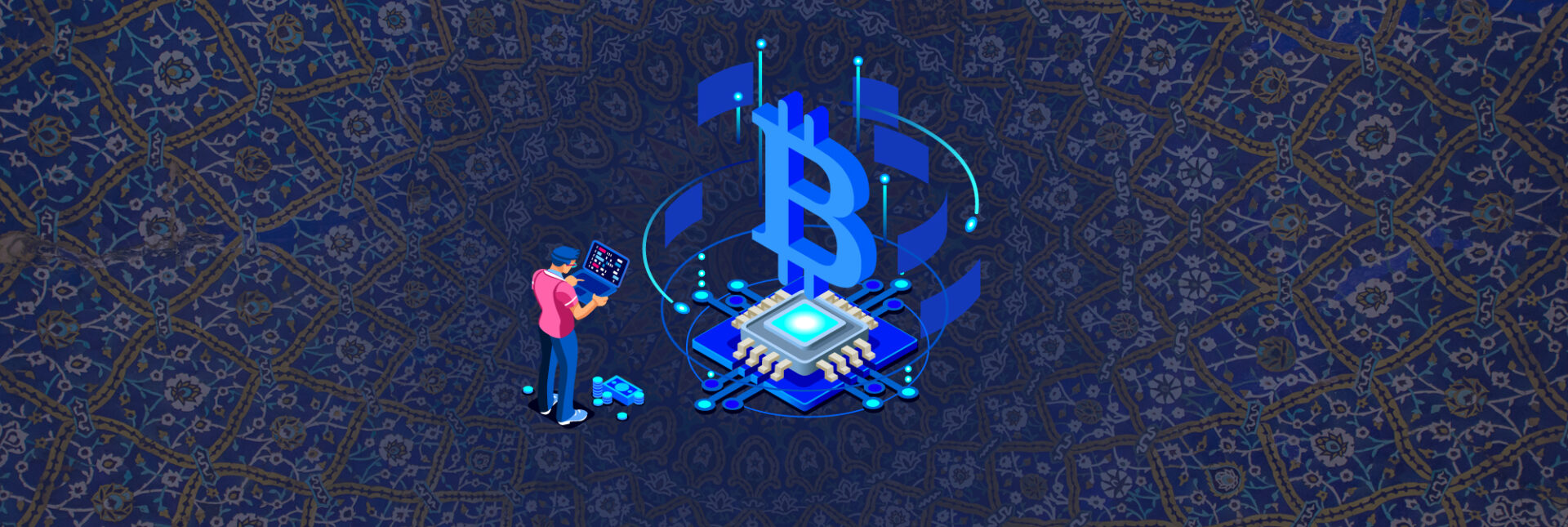By Farhang Maghdeed
Continually evolving and innovating, blockchain technology has gone through various stages of improvements.
Currently, there is a need to understand and interrelate different technology components such as consensus mechanism, cryptographic algorithms, distributed technology, token economy, and identification system, in order to derive a solid definition of blockchain.
By bringing these components together within a trusted platform, there is potential to revolutionise the world economy by shifting commodity, equity and asset markets over into a digital form.
The integration between current industries and the distributed technology of blockchain will provide a secure platform, where every online transaction or real digital asset will be distributed within the consensus mechanism and verified at any time without compromising the privacy of the digital asset(s).
Blockchain Technology and Smart Contracts
When we define the structuring of blockchain technology, it may consist of different application components such as token, block, ledger, distribution, transaction, conformation, consensus, and block reward.
Token here means a smart contract application, where this application consists of an address, and a set of roles. Roles here refer to the set of policies which has been structured to run a set of business models with the approval of authorities.
The smart contract is a protocol that is deployed on top of blockchain technology, in order to facilitate contract concepts between two or more parties, when transactions take place between a sender and receiver. This application runs within a decentralised environment, where contracts are executed within the blockchain pool of networks. This means that the contract is a programmable module which contains a set of roles that follows the terms and conditions of asset allocations.
Sukuk Similar to Smart Contracts
So, how do we then relate the smart contract application to Sukuk as a crowdfunding element of the Islamic capital market?
Deep research and analysis show that the behaviour of Sukuk in comparison with the principle of smart contracts is quite similar. The only difference between them is the automation processes; smart contracts are automated whereas Sukuk are manual.
Sukuk has been used widely by Muslim countries to represent the value of assets as an equity, bond, capital share, or commodity. This serves as a platform for investors to enter a shared capital market.
Today, Islamic finance institutions are in charge of issuing Sukuk, in alignment with certain standards issued by the Accounting and Auditing Organization for Islamic Financial Institutions (AAOIFI), Institute of Financial Accountants (IFA), and global International Financial Reporting Standards (IFRS). Despite this, there are fundamental disagreements and difference in opinions towards structuring the Sukuk principles followed by Shariah resolutions.
SukukChain Solution
To address this divergence, the concept of SukukChain has been introduced as a platform to run a programmable security token or smart contract within a pool of network participants, run by blockchain communities such as Ethereum.
The evolution of Smart Contracts has demonstrated a substantial improvement in this age of blockchain technology development. For example, Ethereum has introduced packs of standards, such as ETH20, ETH77, ETH1400, and ETH1410. These standards are not only programmable but can also follow and adapt to the dynamic rules and regulations from various jurisdictions. Standards ensure compatibility between the processes or rules that you set to run your business models using blockchain technology, while ensuring network compatibility and compliance with certain rules and regulations.
Introducing a new architecture called SukukChain as a standard will enable a devoted chain running within Ethereum Network to cover a specific Sukuk deployment complemented by a Shariah-compliant scheme. Following Shariah principles to comply with Islamic principles is very obvious, as certain rules and regulations must be met to be compliant with the Islamic Sharia law with regards to business structures, systems, documents, processes, contracts, treasury and accounting. The nature of smart contract and the execution of the roles is very close to the nature of the Sukuk from the Islamic Sharia point of view.
The fundamental framework of Sukuk is represented by using four basic components which will support Sukuk structuring fundamentals. In addition, distributed ledger technology will empower the deployment of Sukuk to achieve the common criteria between the nature of Sukuk and smart contracts, such as security, flexibility, scalability, and decentralised nature of transactions. Therefore, the four main components of Sukuk architecture consist of Digital Account, Digital Sukuk, Digital Asset, and an automation of the Shariah module within a legal framework.
Although there are different standards that have been Introduced by Ethereum Network, we are following a specific standard – ERC1400 / 1410 standard which is an upgraded version of ERC20 and ERC777. We chose ERC1400 / 1410 is because of its extended attributes offering interoperability, document management, and improved security features.
In summary, the application of smart contract and distributed ledger technology has the potential to transform the Islamic capital markets, stretching the mechanism of issuing Sukuk, and solving issues of standardisation of the legal framework of Sukuk. The impact here is not compromised or limited to simple instruments such as equity market or fund liquidity but can be extended to other complex mechanisms such as an automation of the Sukuk process issuance.
Farhang Maghdeed is an expert in developing blockchain technology and cryptocurrency regulation frameworks for better governance. He is actively involved in research and publications, while also building blockchain training programmes and structuring blockchain academic courses for enterprises and education platforms.






